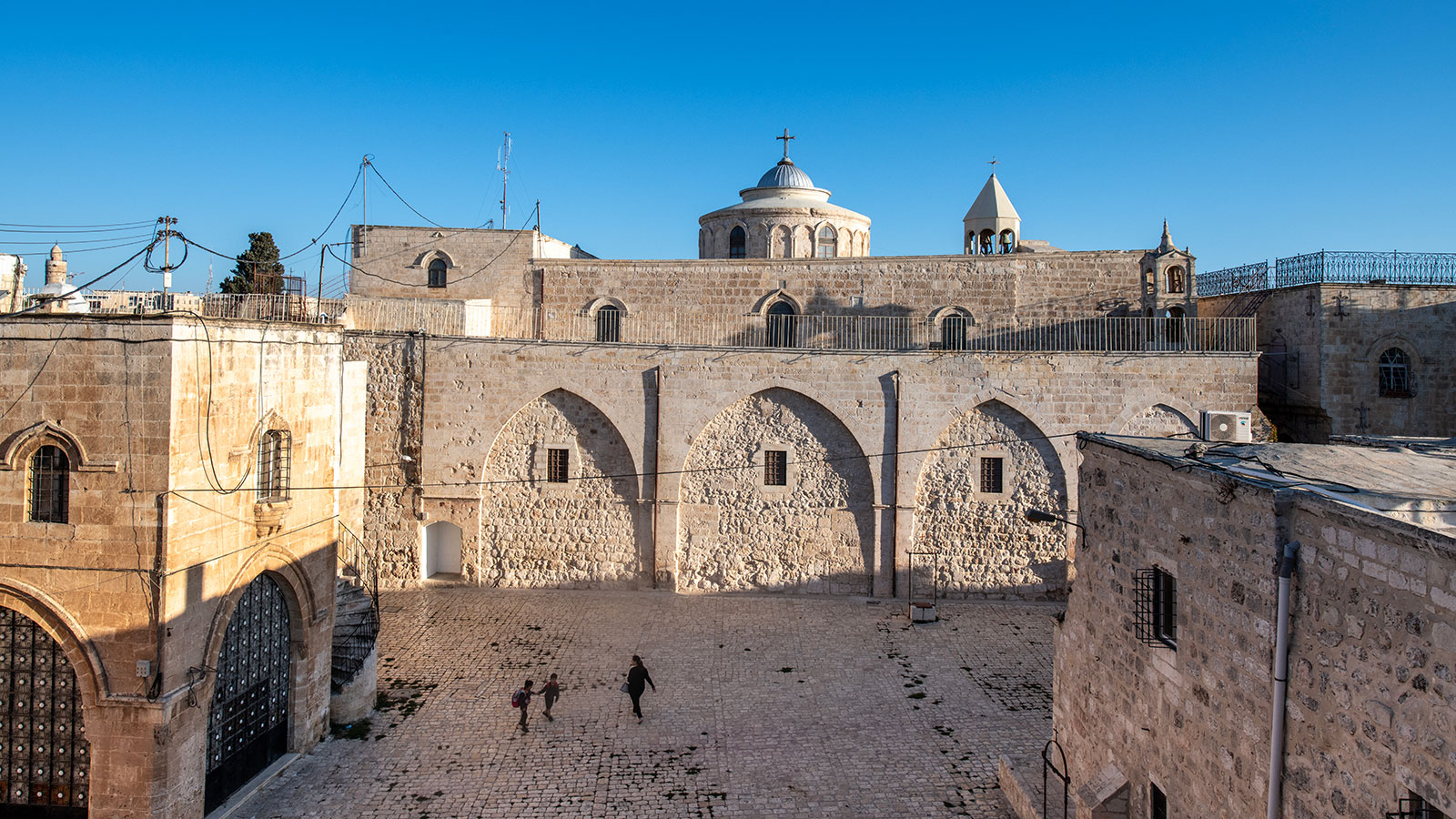The Armenians and Jerusalem

The recent discovery of a collection of unpublished documents related to the construction of the Gulbenkian Library in Jerusalem in the 1930s was the starting point for this exhibition, which draws attention to the Armenians’ millenary connection to the Holy City.
This connection dates back to the first centuries of the Christian era, when merchants and craftsmen from Armenia arrived in Palestine during the Roman era, where they established permanent roots.
As the oldest community in its diaspora, Jerusalem’s Armenian community has survived profound changes, upheavals and wars over the centuries.
Jerusalem’s Armenian Quarter is one of the four main neighbourhoods of the Old City, along with the Muslim, Jewish and Christian quarters, and is home to some of the world’s most revered religious buildings and invaluable antiques.
Like several other Ottoman Armenian families, from the mid-19th century onwards, the Gulbenkians established and cultivated important philanthropic ties with the Armenian Patriarchate of Jerusalem. Calouste Sarkis Gulbenkian continued the family tradition with his support of the project to create the Gulbenkian Library, which was inaugurated in 1932.
To this day, the Gulbenkian Library houses a vast collection of valuable, rare and ancient books and publications, as well as modern titles in various languages, which are invaluable to both the Armenian people and scholars. It is also considered one of the richest libraries in the Old City of Jerusalem.
Organised by the Armenian Community Service and the Art and Archives Library of the Calouste Gulbenkian Foundation, this exhibition presents new insights into the construction of this Library, based on archive documents discovered in a private residence in Paris.
More info